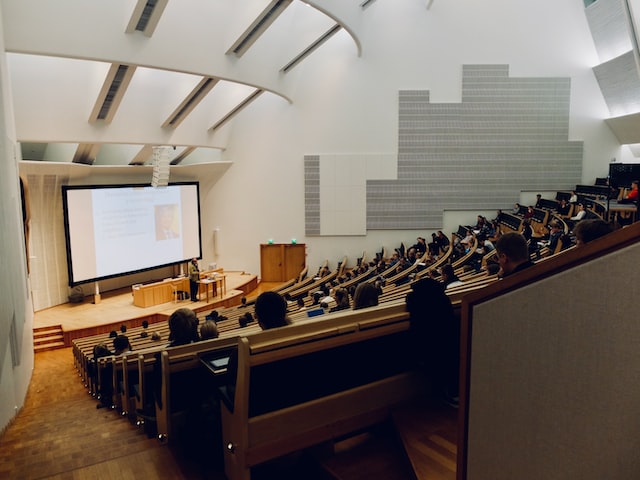If you are interested in becoming a teacher, you may be wondering how many years of college it takes to get the degree and prepare for the job. You should know that the average amount of time it takes to become a teacher is around three years. That will give you time to get a Bachelor’s degree and teach for a few years before you have to go back to school for a Master’s. However, you should be prepared for a long and difficult road ahead.
Bachelor’s degree
If you have a passion for kids, you might want to pursue a career in teaching. A bachelor’s degree in education and teaching can help you get started on your dream career.
Students who choose a program with an emphasis in elementary education will need to complete a number of courses to qualify for state certification. In addition to the academics, students will also need to participate in field experiences. They will learn how to manage a classroom and engage children.

Photo by Dom Fou on Unsplash
Students in the program will also take classes in digital learning tools and communities. During their first year, they will work with students in elementary classrooms. By the time they graduate, they will have gained real-world experience and will be prepared to inspire the future generation of children.
Students who are interested in becoming teachers can choose to focus their studies on elementary, middle grades or special education. All states require that candidates hold a bachelor’s degree before they can be certified.
In addition to the coursework, most programs include student teaching experiences. Prospective teachers will need to have a minimum of 10 weeks of student teaching to prepare for a teaching career. This gives them the chance to practice classroom management and to gain hands-on experience in the subject they intend to teach.
Teacher preparation program
If you have a dream of becoming a teacher, there is a lot of information you need to know. Depending on your subject, your level of experience, and your state of residence, the time it takes to become certified will vary.
Many states require a minimum of a bachelor’s degree, while others require a master’s or higher. In some cases, you can complete a one-year Master of Arts in Teaching (MAT) or Master of Education (MEd) program if you don’t have a teaching credential.
To find the best teacher preparation programs in your area, you can use TEACH’s National Program Directory or the National Council on Teacher Quality’s (NCTS) searchable database. Both offer stats and testimonials on teaching quality, along with rankings of programs.
There are also many teacher preparation programs that focus on particular subjects or grade levels. These programs are often geared toward prospective teachers or experienced teachers.
Some states require a background check before a candidate can teach. In addition, most states require a teaching test to prove that a person is able to teach the appropriate level of student.

Photo by Taylor Flowe on Unsplash
Another option for getting into the classroom is to work as a substitute. This will allow you to gain experience and get a better understanding of the education field.
Career outlook
If you are looking for a career that is challenging and offers a positive impact on the lives of others, you might want to consider teaching. Teachers have a wide range of positions in the field, ranging from elementary school to post-secondary education. In fact, some people choose to become teachers their entire careers.
The job outlook for teachers is not only impacted by their level of education, but also by their geographic location. Jobs for teachers are available in a variety of educational settings, including private and public schools, corporate offices, and churches.
While the number of jobs for teachers in a particular area might be lower than others, there is often plenty of demand. For instance, the Bureau of Labor Statistics projects that 92,700 jobs for secondary education will be needed by 2024. This means that job growth for teachers in this field is expected to be more than average.
Among the fields where teachers should see the best job prospects are those related to math and science. This includes biology, chemistry, and physics. Job growth for these fields is estimated to be around 17%, or slightly higher than the average.
However, jobs for other teachers are also expected to grow. Business education, for example, will enjoy a rate of job growth of about 12 percent.


